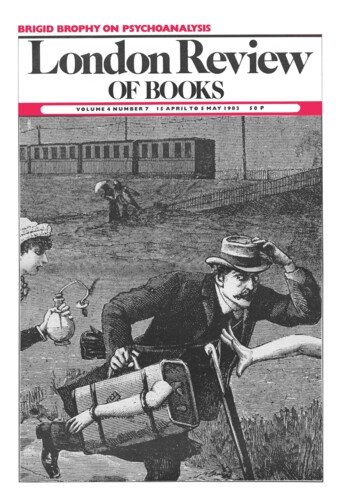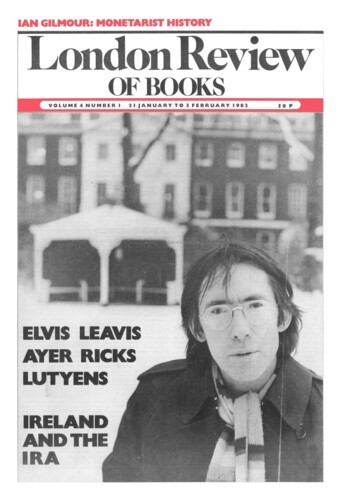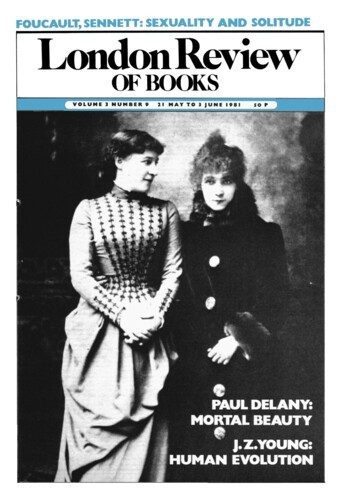He
Paul Delany, 15 April 1982
In 1887, Rider Haggard earned more than £10,000 by writing: only 31, he was probably the highest-paid novelist in England. Twelve years earlier, he had been packed off to Natal as an unpaid flunky to Sir Henry Bulwer. Haggard’s father, a wealthy Norfolk landowner, had considered him too dim for any public school; later, Africa seemed the best place to dispose of such an unpromising younger son. Arrived there, Haggard surprised everyone by proving to be highly competent. Within two years he had become the youngest head of a government department in South Africa. Suddenly he abandoned the Civil Service and set up as an ostrich farmer, where he unfortunately discovered the truth of a local adage that ‘no gentleman ever did any good in Natal.’ The Boers, sturdier and more unscrupulous than the British settlers, were obviously gaining the upper hand; six years after his arrival, Haggard left the country in disgust and spent the rest of his long life in England. Though Africa had disappointed him materially, it had given his imagination enough food for a career of forty years as a novelist.



